Superfund Research Program
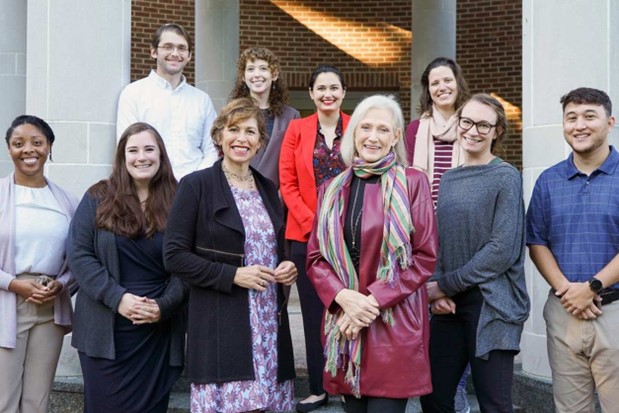
Outreach and Community Engagement - July 23, 2024
Residential property disclosure statements in North Carolina now include a question about testing for contaminants in private wells, thanks to work by the University of North Carolina at Chapel Hill (UNC) SRP Center and collaborators.
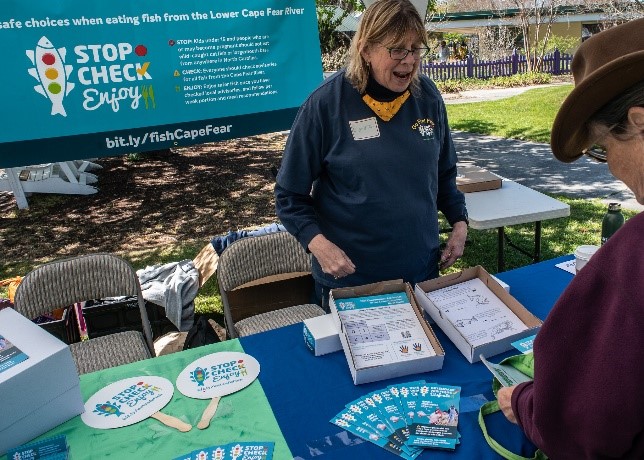
Outreach and Community Engagement - July 8, 2024
Harmful contaminants like mercury and PFAS can accumulate in fish and can be transferred to people when those fish are eaten. Fish consumption advisories provide recommendations about what fish and shellfish to limit and avoid eating based on the body of water where the fish was caught. However, state agencies in the North Carolina Department of Health and Human Services often lack resources to update and communicate these advisories to the public.
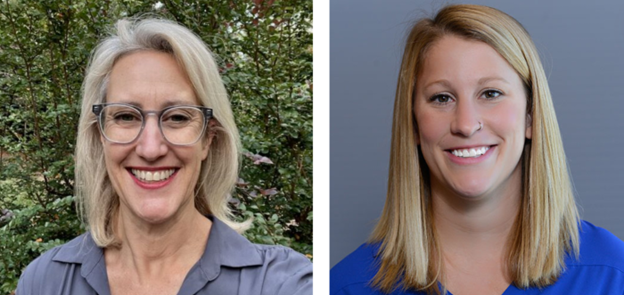
Outreach and Community Engagement - May 6, 2024
NIEHS-funded researchers at the University of Iowa and the North Carolina State University (NC State) Superfund Research Program (SRP) centers partnered to address community concerns about polychlorinated biphenyls (PCBs) discovered in an NC State building. During an online forum on February 24, 2024, the team answered questions from the NC State community about the health effects of PCBs.
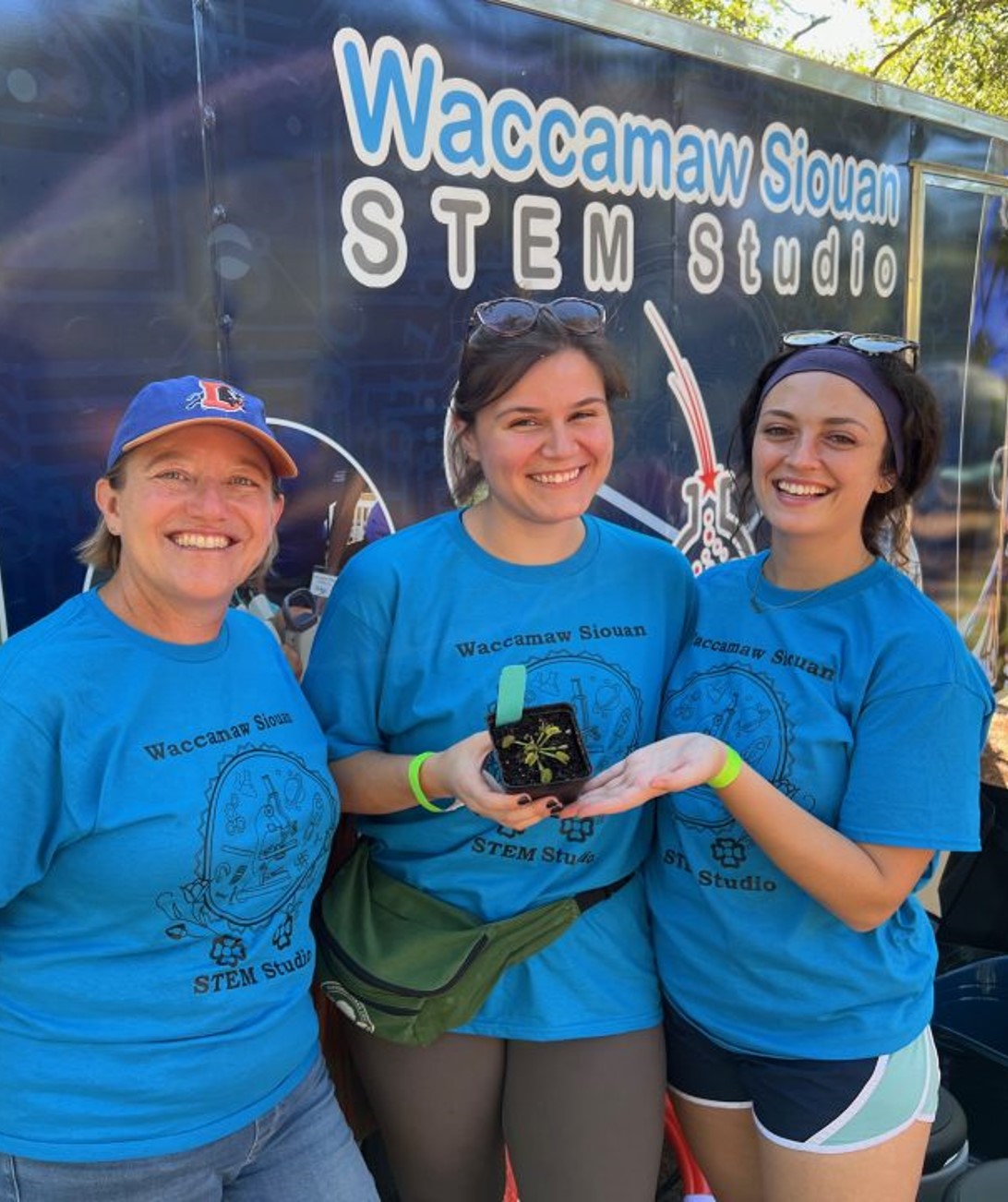
Outreach and Community Engagement - April 12, 2024
Researchers at the NIEHS-funded Duke University Superfund Research Program (SRP) Center are using outreach and community-engaged research to help North Carolina residents identify, understand, and manage risks related to soil contamination. Center staff also develop a variety of tools to help residents identify contaminant sources near their gardens.
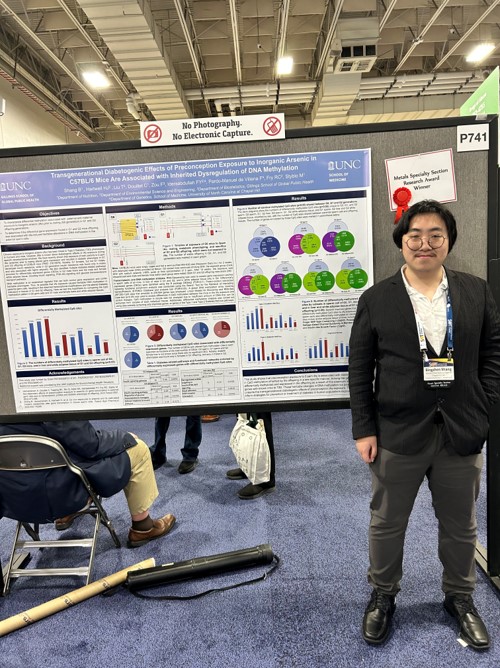
Outreach and Community Engagement - April 11, 2024
Many NIEHS Superfund Research Program (SRP)-funded scientists and trainees, as well as SRP staff, attended the 63rd Annual Meeting and ToxExpo for the Society of Toxicology (SOT), held March 10-14 in Salt Lake City.
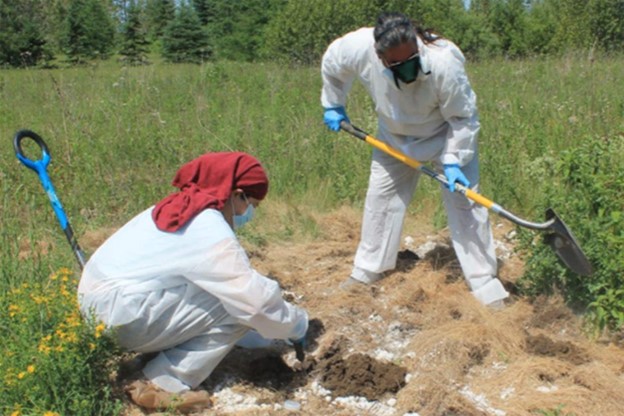
Outreach and Community Engagement - April 11, 2024
Scientists supported by the NIEHS Superfund Research Program (SRP) together with community and Mi kmaq Nation tribal members are using plants to remove PFAS from a contaminated site in northern Maine, a technique known as phytoremediation.
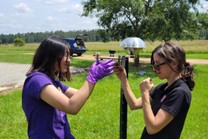
Outreach and Community Engagement - March 15, 2024
Researchers at the Louisiana State University (LSU) Superfund Research Program (SRP) Center used community interview data, referred to as oral history, to reveal long-term effects of a thermal treatment waste facility on residents in Colfax, Louisiana.
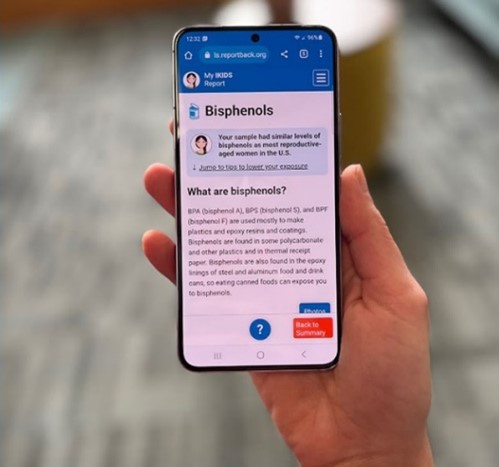
Outreach and Community Engagement - February 14, 2024
NIEHS-funded researchers have created a new framework designed to help scientists report back study findings about potential exposures to participants. The 12-point framework, developed by Katrina Korfmacher, Ph.D., and Julia Brody, Ph.D., of the Northeastern University PROTECT Superfund Research Program (SRP) Center, aims to make report-back a routine part of research within the environmental health sciences.
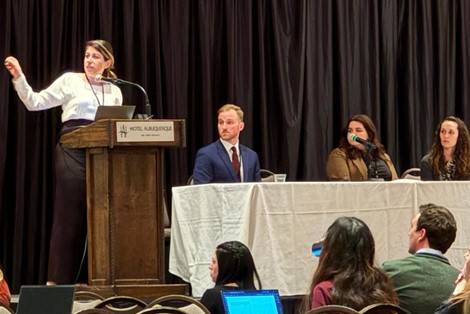
Outreach and Community Engagement - January 22, 2024
The annual grant recipient meeting of the NIEHS Superfund Research Program (SRP), held Dec. 4-6 in Albuquerque, New Mexico, showcased how collaborative research can accelerate scientific discovery to protect the health of communities exposed to harmful contaminants.
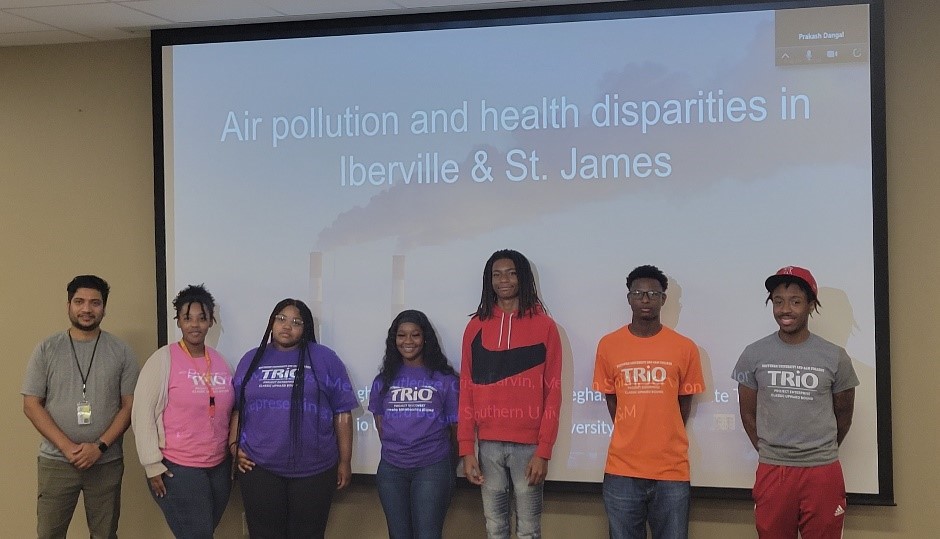
Outreach and Community Engagement - November 9, 2023
Two core goals of multi-project NIEHS Superfund Research Program (SRP) centers are community engagement and research training. Summer programs provide opportunities for center researchers and trainees to serve as mentors and share their work with the community and for students of all ages, from elementary school to college, to learn more about environmental health and research.
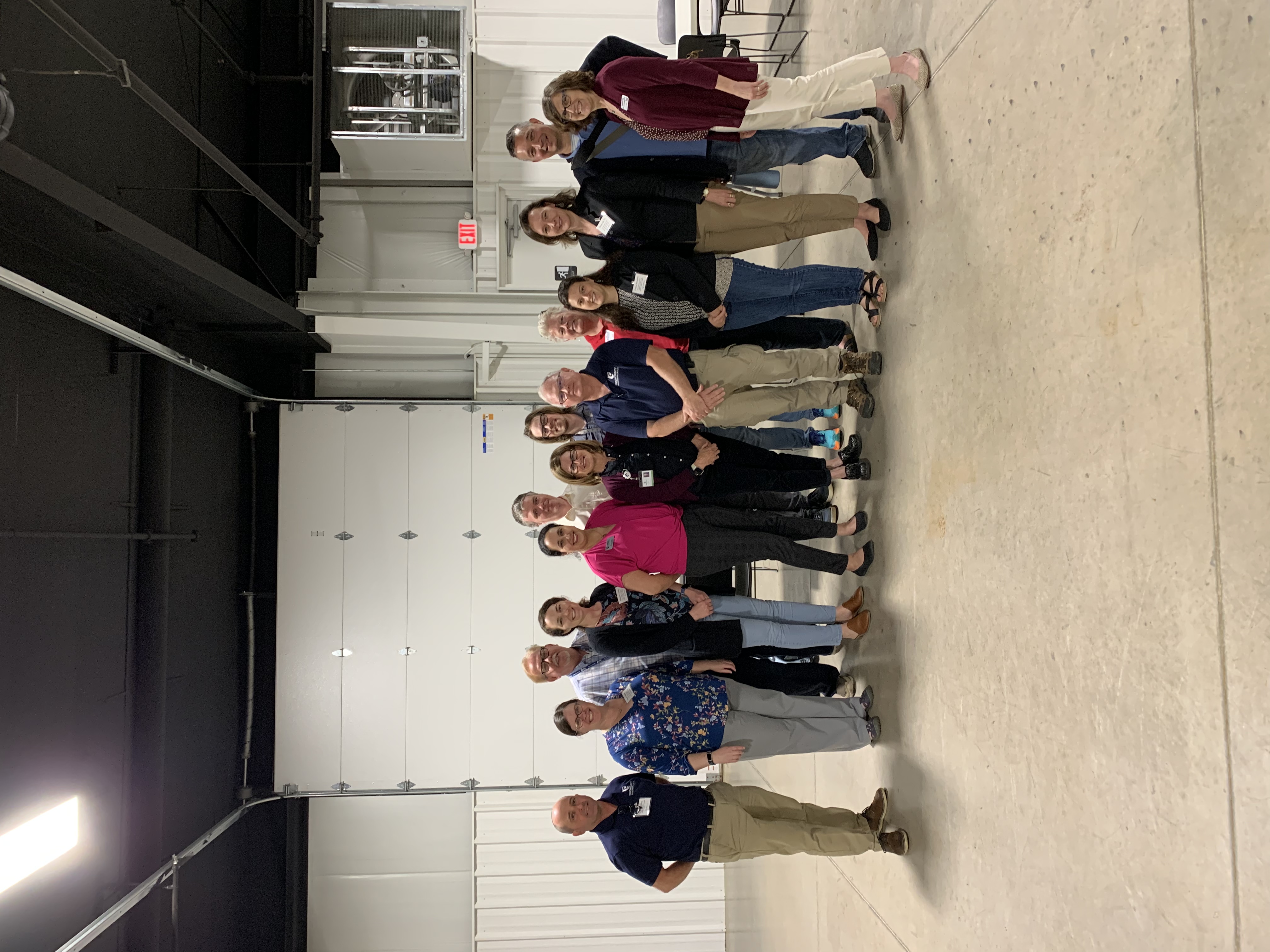
Outreach and Community Engagement - October 20, 2023
Researchers funded by the NIEHS Superfund Research Program (SRP) describe reasons for water contamination disparities, identify current private well disparities, and review how community engagement and interventions like pitcher filters can help protect marginalized communities.
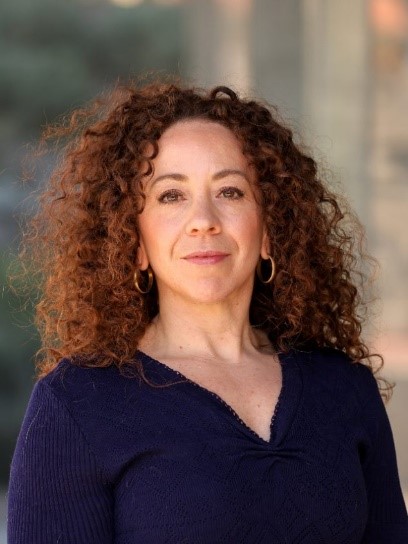
Outreach and Community Engagement - October 6, 2023
Monica D. Ramirez-Andreotta, Ph.D., at the University of Arizona SRP Center is interviewed by Ashley Ahearn for the NIEHS podcast where she discusses the role and impacts of participatory research.
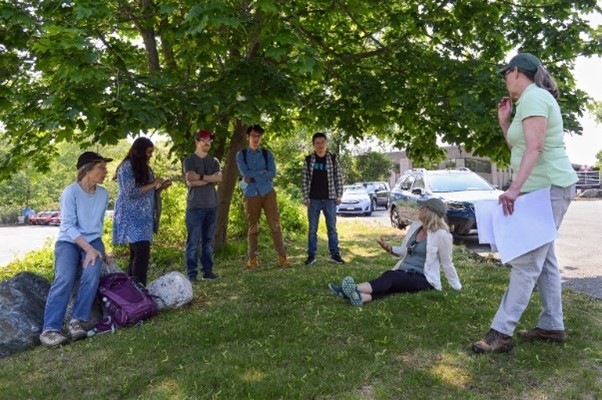
Outreach and Community Engagement - June 1, 2023
NIEHS-funded researchers recently developed a new online course to aid concerned residents and other community members through the process of cleaning up environmental contamination. The course includes educational and interactive modules, short videos, and questions for reflection to help guide participants to identify and address chemical exposures in their homes, neighborhoods, and local communities.
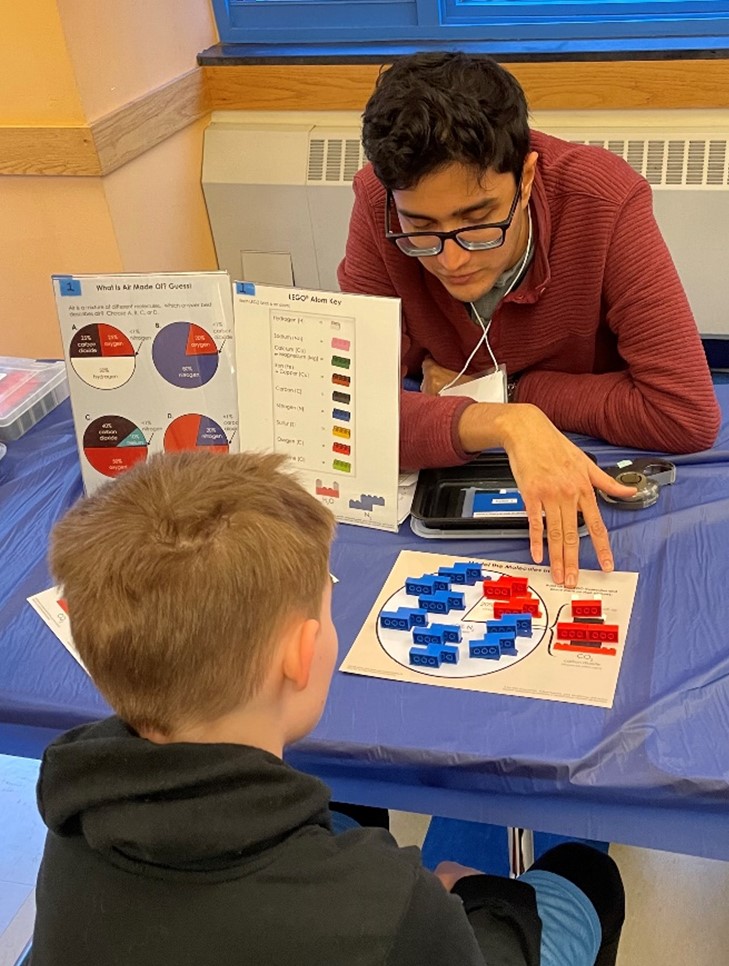
Outreach and Community Engagement - May 18, 2023
A key goal of the NIEHS Superfund Research Program (SRP) is to train future generations of scientists - in the lab and in the community. SRP Centers across the country have been doing just that, participating in community events to teach school-aged children about science.
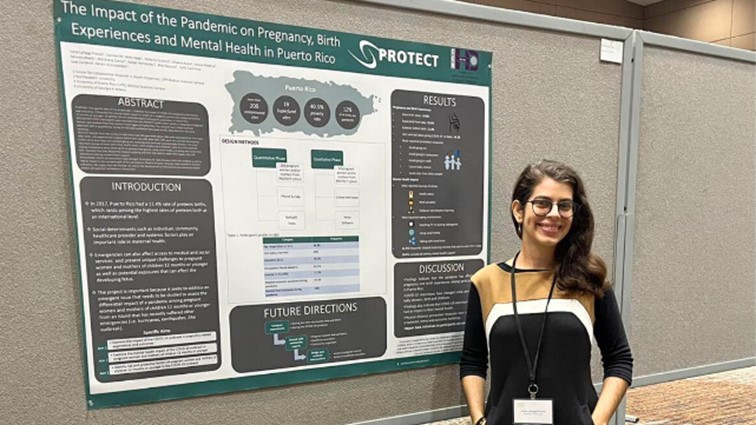
Outreach and Community Engagement - May 9, 2023
Social psychologist Irene Lafarga Previdi, Ph.D., is dedicated to understanding environmental exposures among Puerto Rican communities, and to sharing scientific findings in understandable terms.
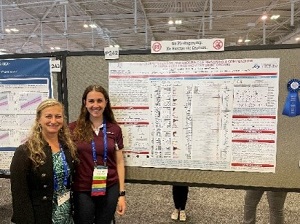
Outreach and Community Engagement - April 27, 2023
NIEHS Superfund Research Program (SRP)-funded scientists from across the country gathered in person for the 2023 Society of Toxicology (SOT) Annual Meeting to share their research and exchange ideas. Held March 19 - 23 in Nashville, Tennessee, the 62nd SOT meeting and ToxExpo drew more than 5,000 attendees who gave more than 2,000 presentations and participated in more than 70 sessions.

Outreach and Community Engagement - April 1, 2023
SRP-funded researchers created Mi PROTECT (Spanish for My PROTECT ), a mobile application to communicate environmental exposure results to pregnant people residing in a highly polluted area in Puerto Rico. The application provides information in both English and Spanish to individuals participating in studies conducted by the Northeastern University Puerto Rican Testsite to Explore Contamination Threats (PROTECT) SRP Center.

Outreach and Community Engagement - February 21, 2023
Researchers at the University of North Carolina at Chapel Hill (UNC) SRP Center adapted an existing environmental justice index to characterize toxic metals from North Carolina drinking water wells.
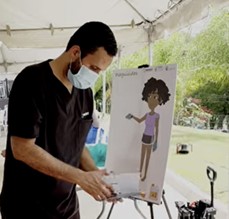
Outreach and Community Engagement - February 6, 2023
Short, fun science videos produced by SRP trainees as part of a competition made their big-screen debut at the SRP Annual Meeting, held December 14-16 in Raleigh, North Carolina. SRP hosted the contest to encourage early-career researchers’ science communication efforts.
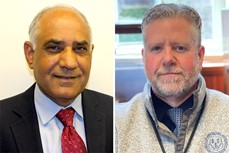
Outreach and Community Engagement - January 1, 2023
NIEHS Superfund Research Program (SRP)-funded grantees organized a workshop to discusses ways to reduce human exposure to toxic elements in food. Sponsored by the United States Department of Agriculture (USDA) the event focused on several themes: toxic element uptake and accumulation in plants; metal-soil interactions and cleanup; and food production and processing.
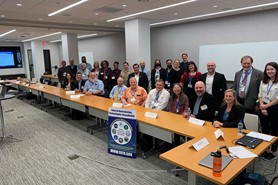
Outreach and Community Engagement - January 1, 2023
Strategies to move environmental cleanup technologies from research and development to the field headlined the agenda of the first in-person Federal Remediation Technologies Roundtable (FRTR) meeting in three years. The event brought together leaders from 10 federal agencies, including NIEHS, to discuss how they can collaborate to meet hazardous waste contamination cleanup goals and emerging needs.
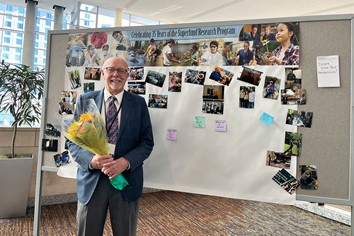
Outreach and Community Engagement - January 1, 2023
The NIEHS Superfund Research Program (SRP) marked its 35th anniversary December 14-17, 2022, at its first in-person annual meeting since 2019. Researchers, trainees, and community partners from across the U.S. gathered in Raleigh, North Carolina, to learn about select SRP-funded projects through workshops and presentations.
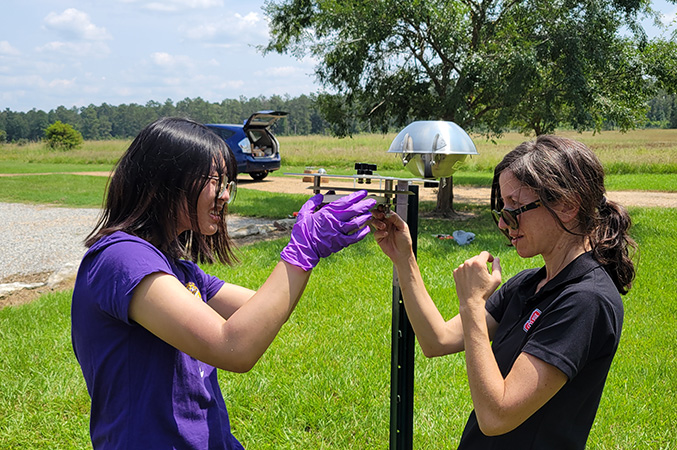
Outreach and Community Engagement - December 7, 2022
Community stories about pollution were found to overlap the locations of a burn facility s smoke plume, helping SRP-funded scientists improve their exposure assessment technique.
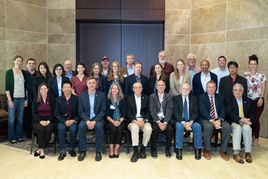
Outreach and Community Engagement - December 1, 2022
Rick Woychik, Ph.D., director of NIEHS and the National Toxicology Program, traveled to Texas A&M University (TAMU) SRP Center October 27-28 for an event celebrating the renewal of TAMU’s SRP Center P42 grant.
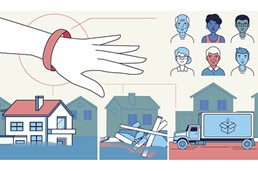
Outreach and Community Engagement - December 1, 2022
During the last two sessions of the three-part SRP Climate Change and Health webinar series. researchers discussed how climate change can potentially increase exposures to health hazards, as well as what they are doing to tackle this complex challenge. Topics covered include harzadous exposures related to hurricanes, wildfires, and melting permafrost.
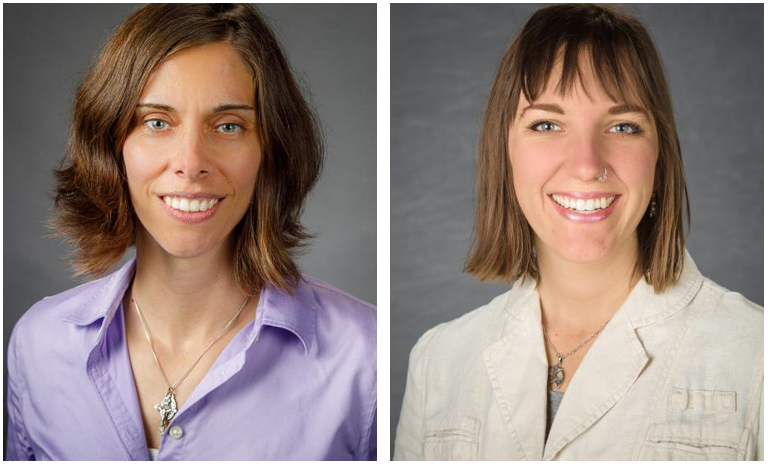
Outreach and Community Engagement - November 3, 2022
University of Kentucky (UK) Superfund Research Program (SRP) Center staff are teaching Kentucky residents to educate their communities about good nutrition and environmental stewardship. Staff members recently led two train-the-trainer events introducing tools and curricula for teaching adults and children.
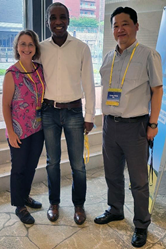
Outreach and Community Engagement - November 1, 2022
The 19th International Conference of the Pacific Basin Consortium for Environment and Health, held Aug. 29 to Sept. 1 on Jeju Island, South Korea, brought together global experts to discuss advancing environmental health and translating scientific knowledge to action under a changing climate.
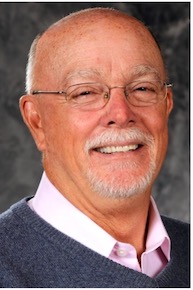
Outreach and Community Engagement - August 24, 2022
SRP Director William Suk, Ph.D., and Health Scientist Administrator Heather Henry, Ph.D., reflected on 35 years of SRP during a conversation with NIEHS Director Rick Woychik, Ph.D.
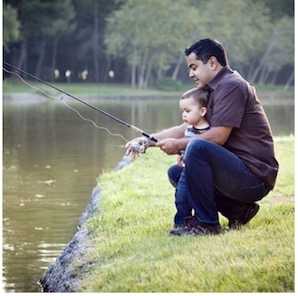
Outreach and Community Engagement - August 17, 2022
Elizabeth Shapiro-Garza, Ph.D., director of the Community Engagement Core at the Duke University SRP Center , and Veronica Carter, with the North Carolina Coastal Federation discuss the “Stop, Check, Enjoy!,” campaign in an NIEHS podcast.
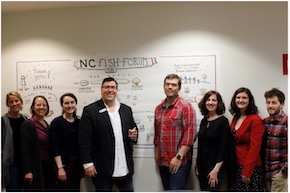
Outreach and Community Engagement - July 18, 2022
Researchers across three SRP-funded universities and their stakeholders organized the North Carolina Fish Forum in 2019.
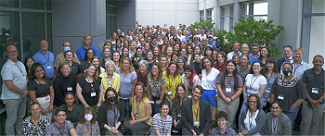
Outreach and Community Engagement - July 11, 2022
Per- and polyfluoroalkyl substances (PFAS) were front and center during the 3rd National PFAS Meeting in Wilmington, North Carolina.

Outreach and Community Engagement - June 17, 2022
NIEHS Superfund Research Program (SRP) grantees developed publicly available courses to help their trainees and the broader environmental health sciences research community develop data science skills.
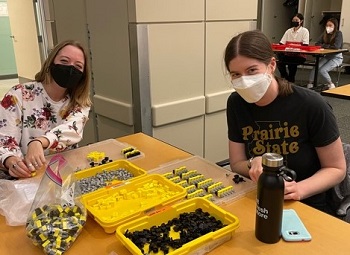
Outreach and Community Engagement - March 9, 2022
Throughout the COVID-19 pandemic, NIEHS Superfund Research Program (SRP) teams have shown resourcefulness, updating existing projects and pursuing new research to address environmental health needs.
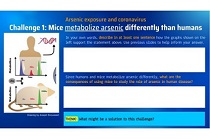
Outreach and Community Engagement - March 1, 2022
A new online educational resource invites high school students to examine ways that humans are exposed to arsenic and how exposure might influence susceptibility to COVID-19 infection. The tool was developed by the NIEHS Superfund Research Program (SRP) Center at the University of North Carolina at Chapel Hill (UNC).
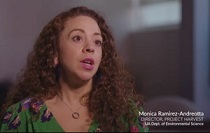
Outreach and Community Engagement - March 1, 2022
During her Feb. 14 NIEHS Keystone Science Lecture, Monica Ramirez-Andreotta, Ph.D., shared the numerous ways she works with communities to integrate their priorities into environmental health sciences research. The University of Arizona SRP Center researcher directs Gardenroots and Project Harvest, which are citizen science initiatives that engage community members about the health of their soil, water, and plants.

Outreach and Community Engagement - January 28, 2022
New fish consumption advisories in North Carolina were developed using data collected through the NIEHS Superfund SRP Center at Duke University. The goal is to better protect the health of people who collect and eat fish from the Cape Fear River.
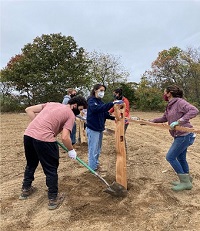
Outreach and Community Engagement - November 4, 2021
Approximately 500,000 Native Americans live within three miles of a Superfund site. The NIEHS Superfund Research Program (SRP) has long supported community-engaged research with Native American communities to identify strategies to reduce exposures and protect their health. To celebrate Native American Heritage Month, this article recognizes how some SRP researchers address community concerns in Tribal lands.
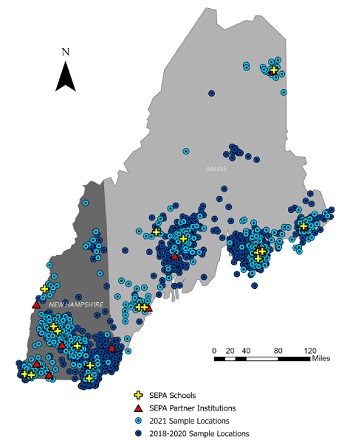
Outreach and Community Engagement - October 21, 2021
Researchers at the NIEHS Superfund Research Program (SRP)-funded Center at Dartmouth College and collaborators quickly identified challenges and realistic solutions for their citizen science project, All About Arsenic, during the COVID-19 pandemic.
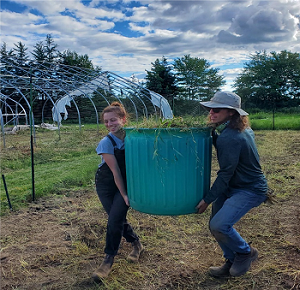
Outreach and Community Engagement - September 28, 2021
NIEHS-funded Brown University Superfund Research Program (SRP) Center researchers and Narragansett Tribal leaders, long-time partners in community activities, joined forces again. Through their collaboration, they are educating and empowering Tribal members to address their environmental health concerns in a way that connects cultural and scientific knowledge.
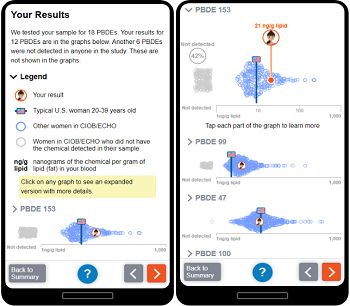
Outreach and Community Engagement - September 2, 2021
Involving the community is valuable when adjusting clinical and public health guidance, especially as it relates to the health effects of per- and polyfluoroalkyl substances (PFAS) and other chemicals of concern.
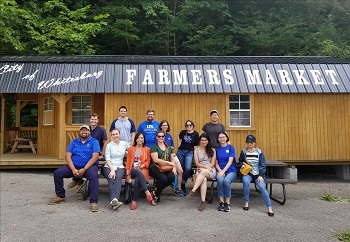
Outreach and Community Engagement - August 19, 2021
NIEHS Superfund Research Program (SRP) trainees from institutions across the Southeastern U.S. gathered virtually for a two-day event, Aug. 2 and 4, to discuss best practices for partnering with communities vulnerable to environmental exposures. The event was organized by the University of North Carolina at Chapel Hill (UNC), North Carolina State University, Duke University, University of Kentucky (UK), University of Louisville, and University of Alabama at Birmingham SRP centers.
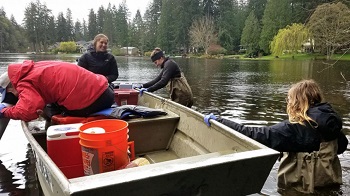
Outreach and Community Engagement - August 5, 2021
Researchers from the NIEHS-funded University of Washington (UW) Superfund Research Program (SRP) Center found new evidence that environmental contamination from a former smelter in Ruston, Washington may pose a threat to human health in surrounding areas. Before publishing the results, the team reached out to coordinate risk communication strategies with agency partners and share the findings with potentially affected communities.
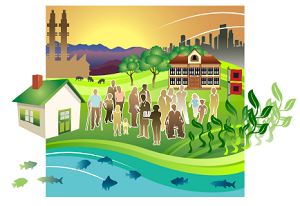
Outreach and Community Engagement - June 9, 2021
Researchers funded by the NIEHS Superfund Research Program (SRP) have been in the spotlight recently for their work on environmental justice (EJ). From being selected for prestigious committees to supporting webinar series, SRP grantees and their partners are addressing the challenges and complexities of EJ.
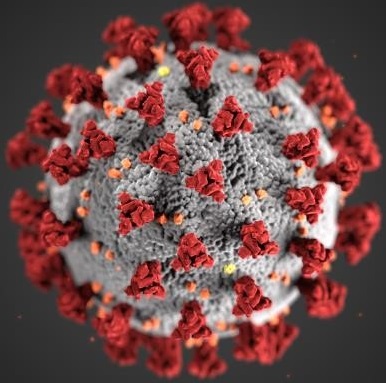
Outreach and Community Engagement - December 9, 2020
The NIEHS Superfund Research Program (SRP) provided supplemental funding to four centers to expand the focus of their research to address critical knowledge gaps related to exposure to the SARS-CoV-2 virus and its disease, COVID-19. In response to the evolving nature of the COVID-19 pandemic, this funding encourages SRP researchers to address the public health crisis and its disparate effects on vulnerable populations.


